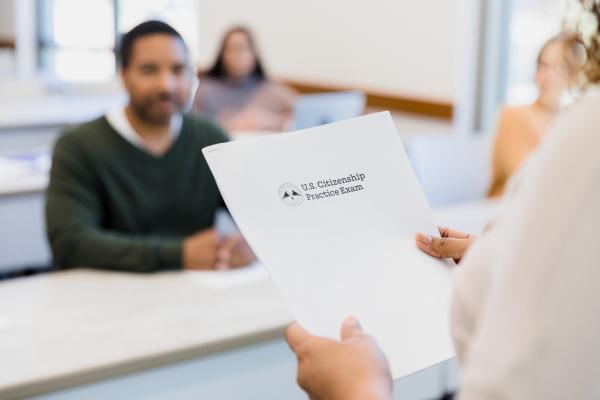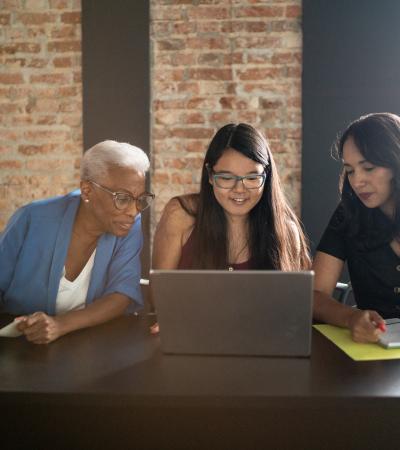When I was in high school, civics was a mandatory class for all seniors. If you did not pass the course, you received an empty folder at the graduation ceremony requiring that you take summer school. Horrors!

Fast forward to 2017, when my department, Refugee & Immigrant Services & Empowerment (RISE) received a Library Services and Technology Act (LSTA) grant to write our English for Citizenship curriculum. With the funding, we created a course to help Kansas City immigrants pass their citizenship tests. It was also an eye-opening experience for some library staff, who realized we didn't know as much civics information as we thought and discovered civics was no longer taught in many school districts throughout the United States. This is a great disservice to our nation’s youth.
Civics plays an incredibly important role in assisting native-born U.S. citizens in knowing the duties of being citizens and their rights. If you need a civics refresher, read on, and consider ways you can offer this same education at your library
Bill of Rights recap
The Bill of Rights (the first 10 amendments) and the remaining 17 amendments that changed the original Constitution are essential to each person's daily life in the U.S. You may think I am exaggerating, but I am not. Let’s consider the following amendments and reflect on how they impact each of us:
- Amendments 1-10: Include freedom of expression, religion, assembly, fair trial, states’ rights
- Amendment 13: Abolition of slavery
- Amendment 15: Black suffrage (voting)
- Amendment 19: Women's suffrage (voting)
- Amendment 20: Terms of office (term ends on January 20)
- Amendment 22: Term limits for the presidency (two terms)
Writing the English for Citizenship curriculum had the RISE staff looking at the 100 civics questions and the answers. These are part of the United States Citizenship and Immigration Services’ (USCIS) naturalization interview examination.
Each applicant (immigrant) is expected to know all 100 answers, even though they only need to answer 6 of 10 correctly. Of course, native-born Americans do not need to pass an examination; just being born in the United States has given them a guaranteed birthright.
While many school districts have removed civics classes, how many people know about the 27 amendments? Or the three branches of the government and what they do? Or who becomes president if both the current president and vice president are unable to serve? Or the differences between federal and state powers?
Sample citizenship questions
Below are sample citizenship questions used for presentations chosen at random by the RISE staff. They are not the easiest or the hardest. USCIS has a weighted computer system that ensures equity in the question selection. I invite you to take this opportunity to answer the questions.
- What is the economic system in the United States?
- What are two cabinet level positions?
- What is one promise you make when you become a United States citizen?
- There were 13 original states. Name three.
- What is one thing Benjamin Franklin is famous for?
- Name one war fought by the United States in the 1800s.
- What did Susan B. Anthony do?
- The Federalist Papers supported the passage of the U.S. Constitution. Name one of the writers.
- Name one state that borders Canada.
- Name one of the two longest rivers in the United States.
You can find the answers on the USCIS website. I often use the 10 questions as part of a presentation, and very few people will volunteer their results.
So, how did you do? If you answered 6 of the 10, you move on to the reading, writing and speaking portions of the test.
Passive civics programs
Try having the 10 questions listed above as a passive handout for patrons. Participants can receive a U.S. flag sticker, and the answers can be kept at the circulation or reference desk. You could also have staff members take the test at a staff meeting.
This is an election year, and many topics have been in the news that all citizens need to know about. Many patrons rely on library sources for information, and part of being a librarian is to assist patrons with their inquiries. Passive programs, like handing out sample citizenship questions or having the League of Women Voters 2024 guides on a table with voter registration materials, help our patrons become stronger participants in the democratic process.
This article was written by a member of ALA's Public and Cultural Programs Advisory Committee.



